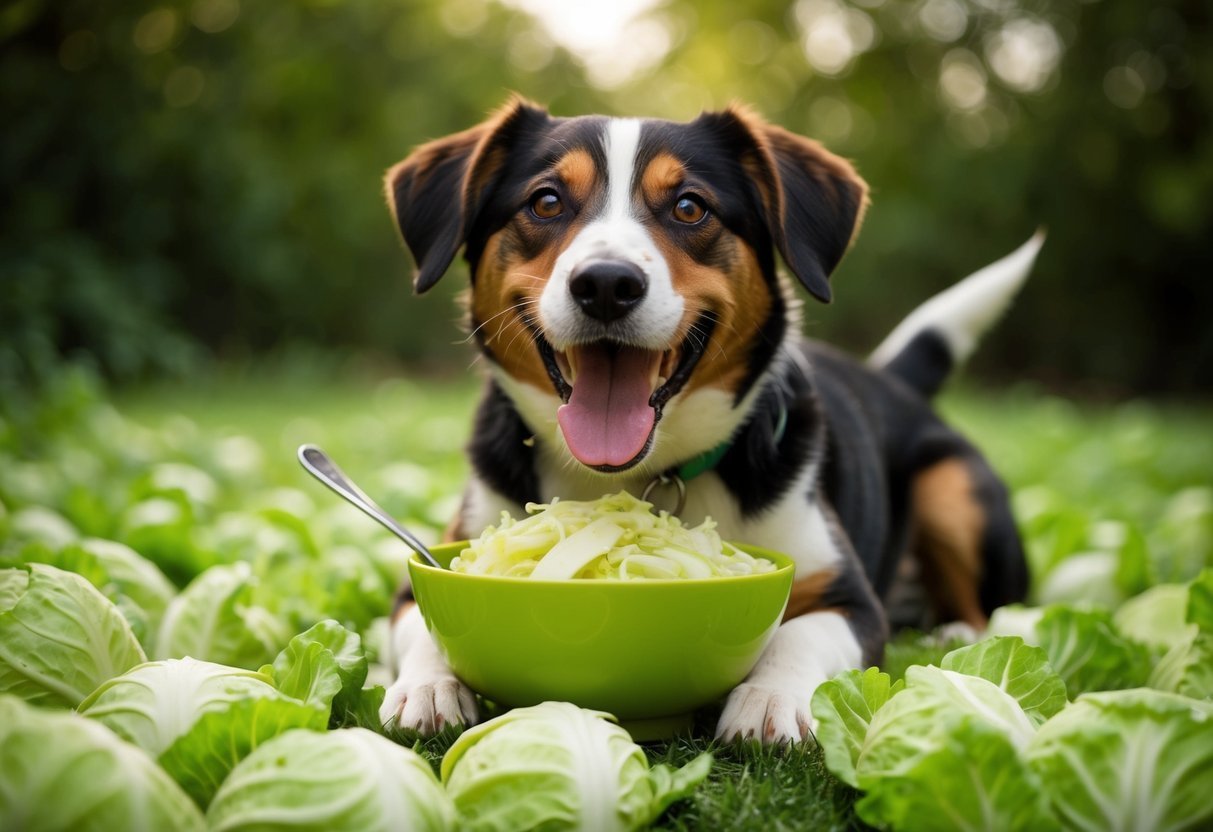If you’re looking to add something new and healthy to your dog’s diet, consider cabbage.
Many dog owners may not realize it, but this leafy green can offer several health benefits for your furry friend. Feeding your dog cabbage can improve their health in surprising ways.
Incorporating fresh fruits and vegetables into your dog’s meals is a great way to enhance their nutrition.
Cabbage is not only safe for dogs to eat, but it can also be a tasty treat packed with essential vitamins and minerals.
Understanding how this vegetable can benefit your dog may change the way you think about their diet.
Improved Digestion
Feeding your dog cabbage can really help with digestion.
This crunchy vegetable is high in fiber, which is great for your dog’s gut health.
Fiber helps move food through the digestive tract more smoothly.
When you add cabbage to your dog’s meals, it can reduce the chances of constipation.
A healthy digestive system means your dog feels better and has more energy.
Make sure to cook the cabbage before serving it.
Cooking makes it easier to digest and can cut down on gas.
Raw cabbage can sometimes cause tummy troubles, so preparation matters.
Just remember to introduce cabbage slowly into your dog’s diet.
This way, you can monitor how they respond to it.
If your dog enjoys it and digests it well, you can make it a regular treat!
Shinier Coat

Feeding your dog cabbage can lead to a shinier coat.
This vegetable is packed with nutrients that are good for your dog’s skin and fur.
Cabbage contains vitamins that support healthy hair growth.
These vitamins help prevent dryness and flakiness, making your dog’s coat look smooth and vibrant.
Many dog owners have noticed a positive change after adding cabbage to their pets’ meals.
A shiny coat not only looks nice but also indicates good health.
When you provide your dog with a balanced diet that includes cabbage, you’re giving their body the tools it needs to thrive.
This means healthier fur and happier pets.
Just remember to feed cabbage in moderation and cook it well to make it easier for your dog to digest.
Adding this simple veggie could make a big difference in your pup’s appearance!
Rich in Vitamins
Cabbage is packed with vitamins that can benefit your dog’s health.
It contains vitamins like A, C, K, and several B vitamins.
These nutrients are important for your dog’s overall well-being.
Vitamin C helps boost the immune system, keeping your dog healthy and active.
Vitamin K is essential for clotting blood and maintaining strong bones.
B vitamins, such as B6 and B12, play a role in energy production and brain health.
A balanced dose of these vitamins can help your dog’s overall function and vitality.
Including cabbage in your dog’s diet adds these vital nutrients.
Just remember to introduce it gradually to avoid any stomach upset.
Always chop it into small pieces to make it easier to digest.
Boosts Immune System
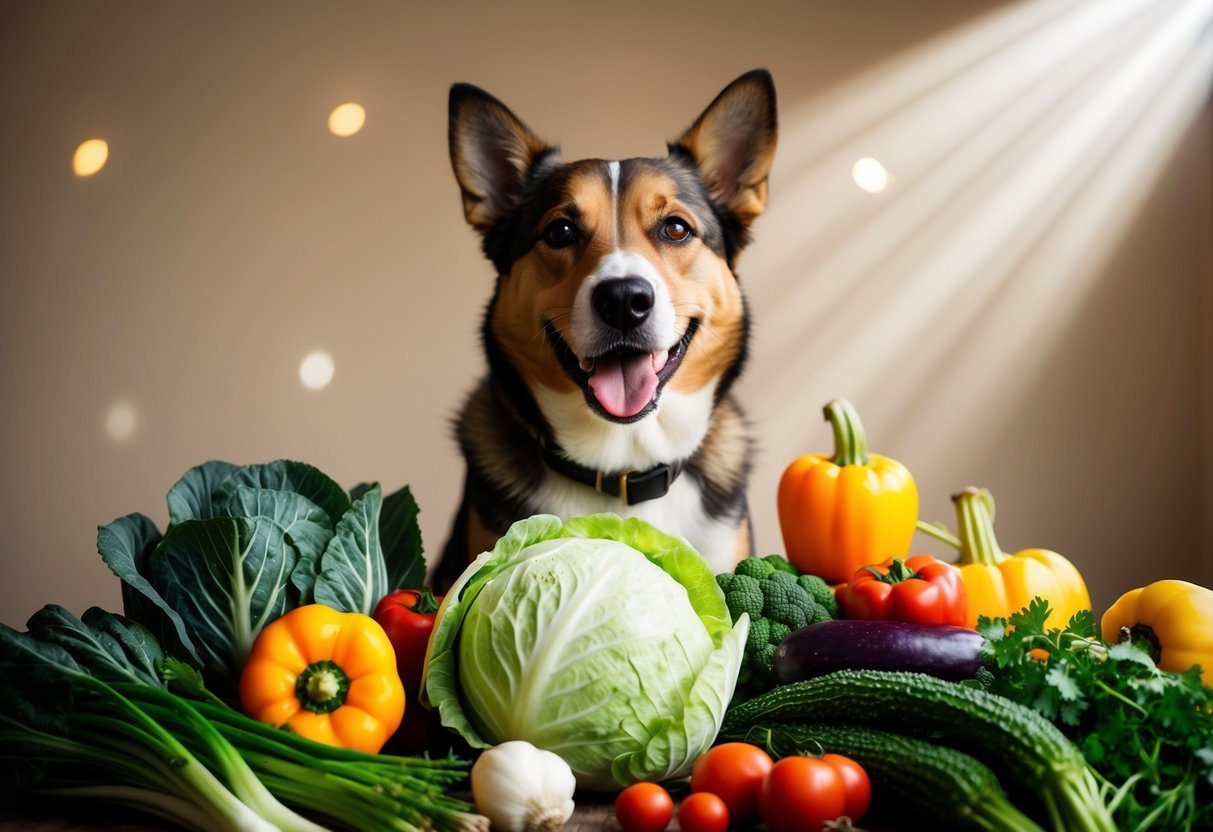
Feeding your dog cabbage can give their immune system a nice boost.
Cabbage is rich in vitamin C, which is known to help support immune function.
A stronger immune system means your dog can better fight off illnesses.
Along with vitamin C, cabbage contains antioxidants.
These help reduce inflammation and protect your dog’s cells from damage.
This can lead to a healthier, happier pup.
Adding cabbage to your dog’s diet can also promote a healthy gut.
A good gut environment is crucial for overall health.
When your dog’s gut is in good shape, their immune system performs better.
It’s important to introduce cabbage gradually.
Start with small amounts and watch for any reactions.
Most dogs can enjoy this veggie without any issues, making it a great addition to their meals.
5) Low-Calorie Snack
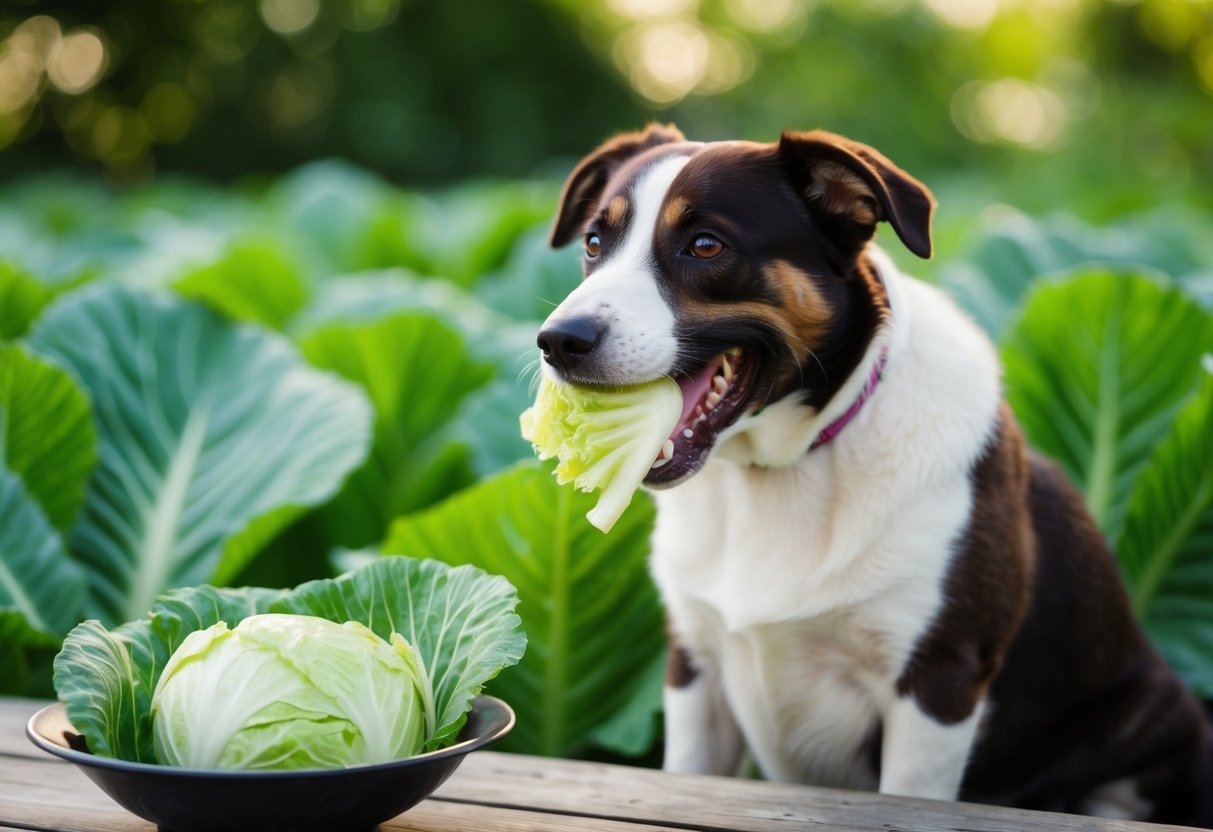
Feeding your dog cabbage can be a great way to offer a low-calorie snack.
Many dogs love the crunchy texture and mild taste, making it a fun addition to their diet.
Since cabbage is low in calories, it’s perfect for dogs that need to watch their weight.
You can serve it fresh, cooked, or mixed into their regular food.
Just remember to chop it into bite-sized pieces.
This helps prevent choking and makes it easier for your dog to enjoy.
Cabbage can also help keep your dog feeling full without adding extra calories.
This way, they can snack happily without piling on the pounds.
Overall, adding cabbage as a treat can be beneficial for your dog’s health and waistline.
Supports Bone Health
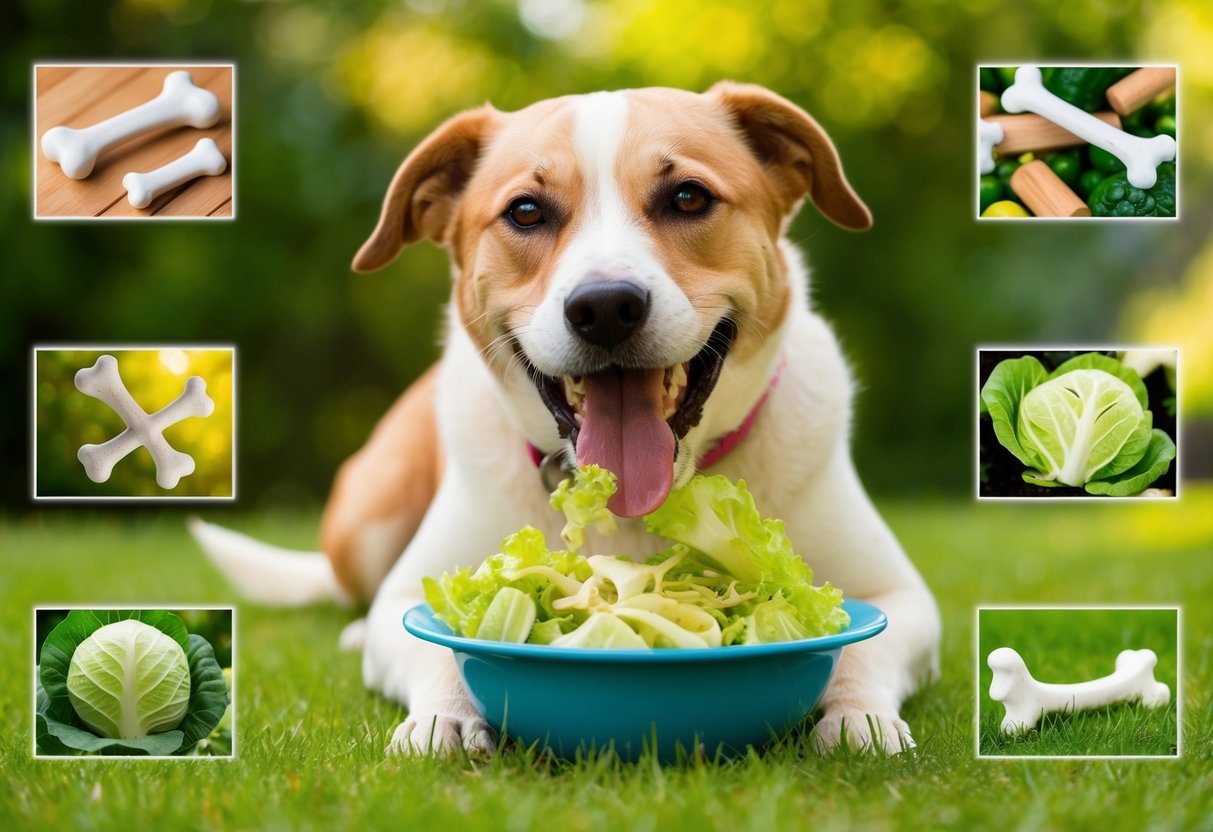
Feeding your dog cabbage can be great for their bone health.
Cabbage is rich in vitamin K, which is important for strong bones.
This vitamin helps with calcium absorption and keeps bones healthy.
By including cabbage in your dog’s diet, you support their overall bone development.
Strong bones are essential for active dogs, especially those that love to run and play.
In addition to vitamin K, cabbage also contains various minerals that contribute to bone strength.
These nutrients work together to help maintain a healthy skeletal system.
Just remember to feed cabbage in moderation.
Too much can upset your dog’s stomach.
Cooked cabbage is easier for dogs to digest, so consider lightly steaming it before serving.
Adding cabbage to your dog’s meals can be a tasty and nutritious boost for their bones.
A little goes a long way in supporting their health and well-being.
Aids Weight Loss
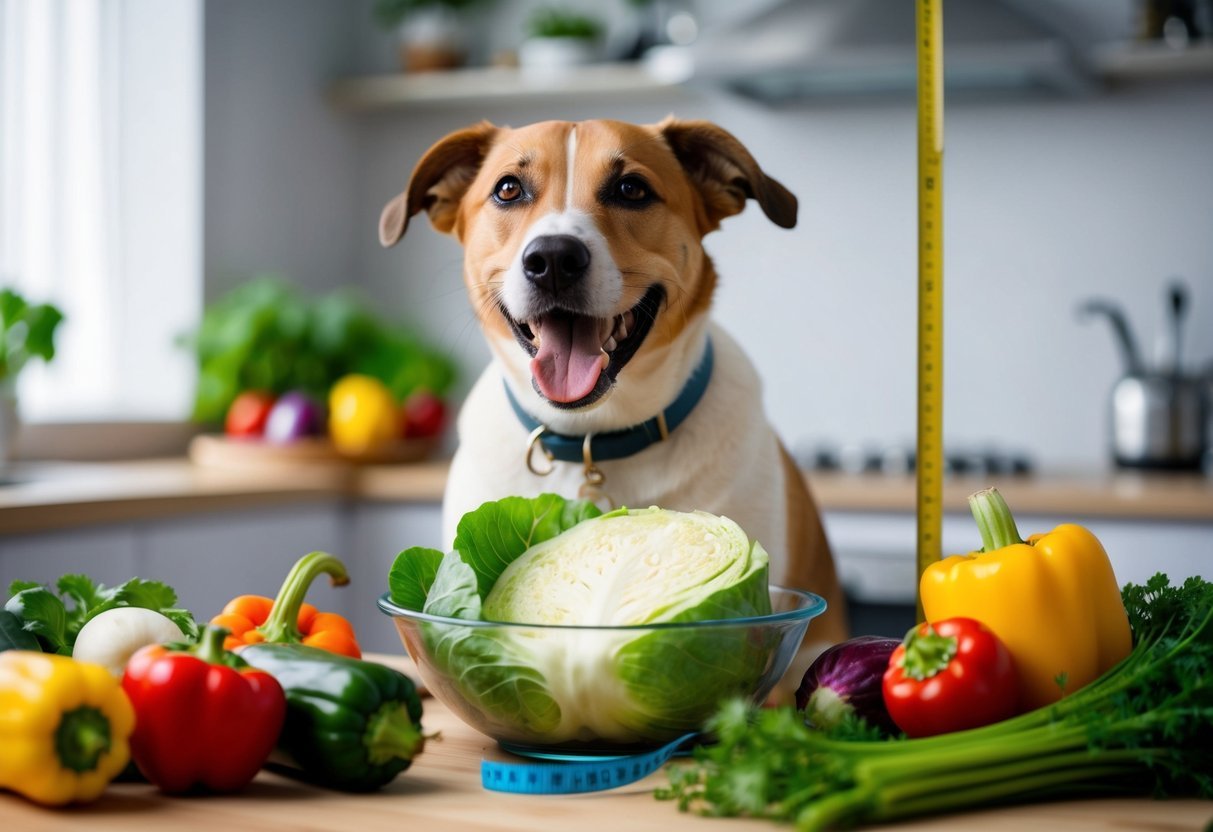
Cabbage can be a helpful addition if you’re watching your dog’s weight.
It’s low in calories but high in fiber.
This means your dog can feel full without eating a lot of extra calories.
When you incorporate cabbage into your dog’s diet, it helps with digestion.
Better digestion can lead to a healthier metabolism.
This can support weight loss efforts.
Also, cabbage can be a great snack.
You can chop it up for treats or mix it with their regular food.
Dogs often enjoy the crunch and taste of fresh cabbage.
It’s important to remember to introduce cabbage slowly.
This lets your dog’s stomach adjust to the new food.
Too much at once can cause gas or upset stomach.
Always consult your vet when adding new foods to your dog’s diet.
They can help you determine the right amount of cabbage for your dog’s specific needs.
With a balanced diet and regular exercise, cabbage can contribute to maintaining a healthy weight for your furry friend.
Nutritional Benefits of Cabbage
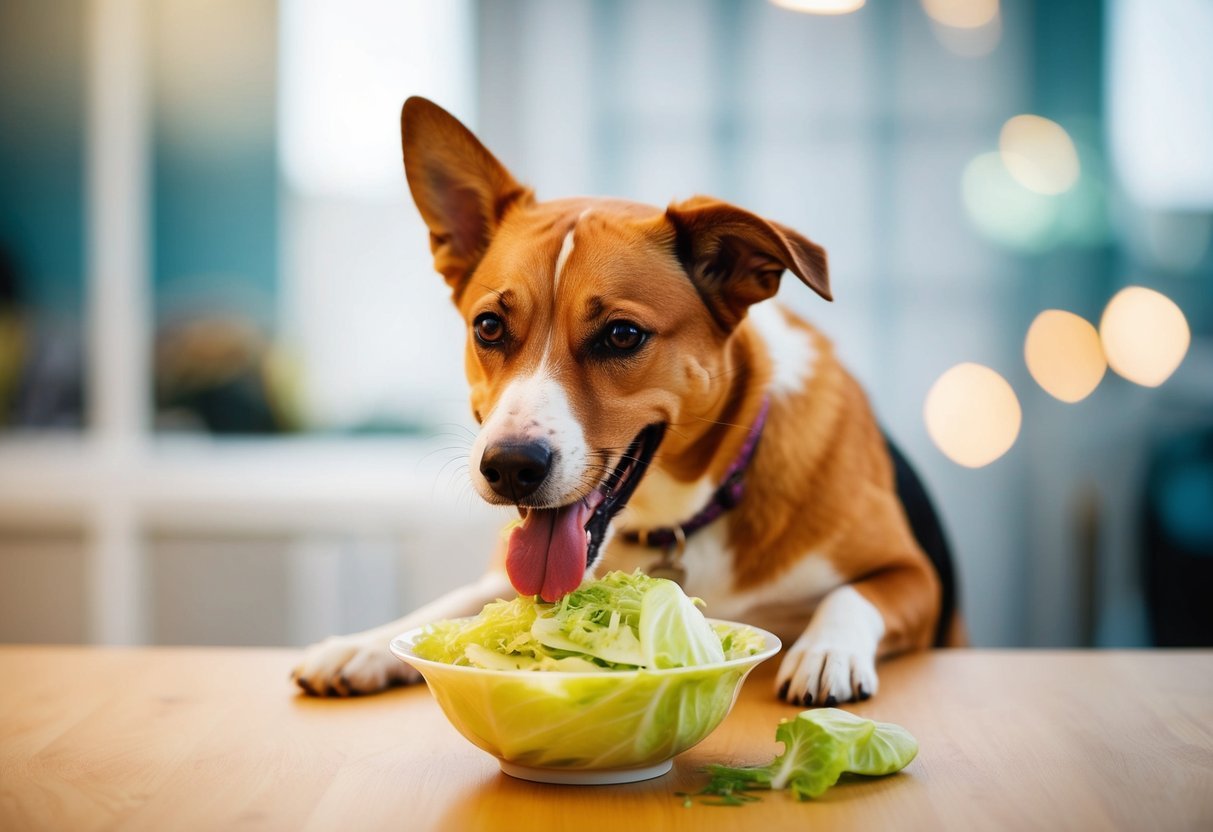
Cabbage is a nutritious vegetable that can offer several health benefits for your dog.
Loaded with essential vitamins and minerals, it can help support your dog’s overall health, especially when incorporated into a balanced diet.
Vitamins and Minerals
Cabbage is rich in vital vitamins and minerals.
It contains:
- Vitamin C: This helps boost the immune system and may reduce inflammation.
- Vitamin K: Essential for blood clotting and helping maintain healthy bones.
- B Vitamins: Including B6, which supports metabolism and energy levels.
These nutrients contribute to your dog’s overall well-being.
Regularly feeding your dog small amounts of cabbage can help ensure they get these important vitamins.
Just remember to serve it in moderation to avoid any digestive issues.
Digestive Health
Cabbage is high in fiber, which can promote healthy digestion in dogs.
When your pup consumes cabbage, the fiber can help:
- Regulate Bowel Movements: Fiber aids in moving food through the digestive tract.
- Prevent Constipation: Adequate fiber helps keep things moving smoothly.
- Support Gut Health: It may encourage the growth of beneficial gut bacteria.
Adding cabbage to your dog’s diet can aid in maintaining a healthy digestive system.
Cooked or steamed cabbage is easier to digest, so consider preparing it this way before serving.
How Cabbage Affects Your Dog’s Energy Levels
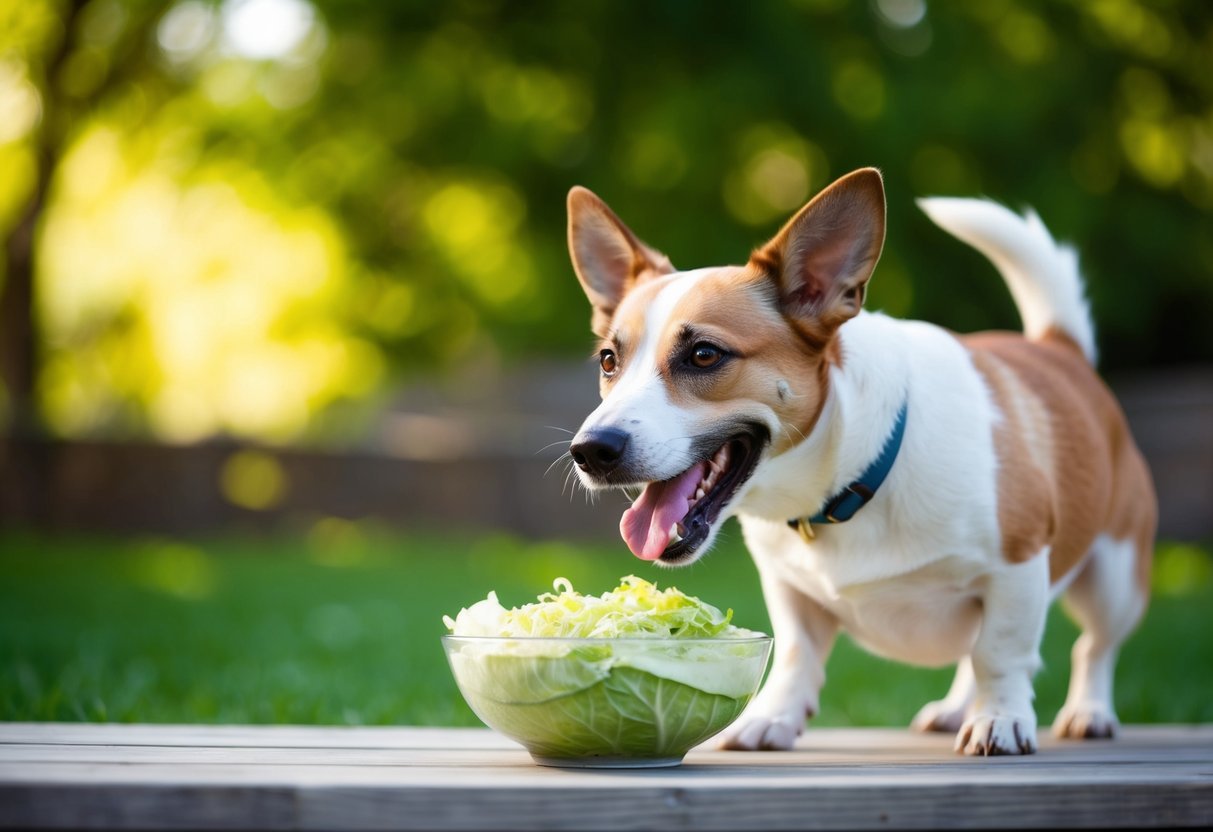
Cabbage can play a role in your dog’s energy levels by helping to boost metabolism and maintain a balanced diet.
Including this vegetable in moderation may enhance your dog’s overall vitality.
Boosting Metabolism
Cabbage is low in calories yet packed with nutrients, making it a great addition to your dog’s diet.
It contains fiber, which aids digestion and helps your dog feel full without excessive calories.
When you add cabbage to their meals, it can stimulate the metabolic process.
This helps convert food into energy more efficiently.
As a result, your dog might have increased energy levels throughout the day.
Be sure to prepare cabbage properly by steaming or chopping it into small pieces.
This makes it easier for your dog to digest.
Always introduce it gradually to monitor any reactions, ensuring your furry friend benefits from this nutritious boost.
Frequently Asked Questions
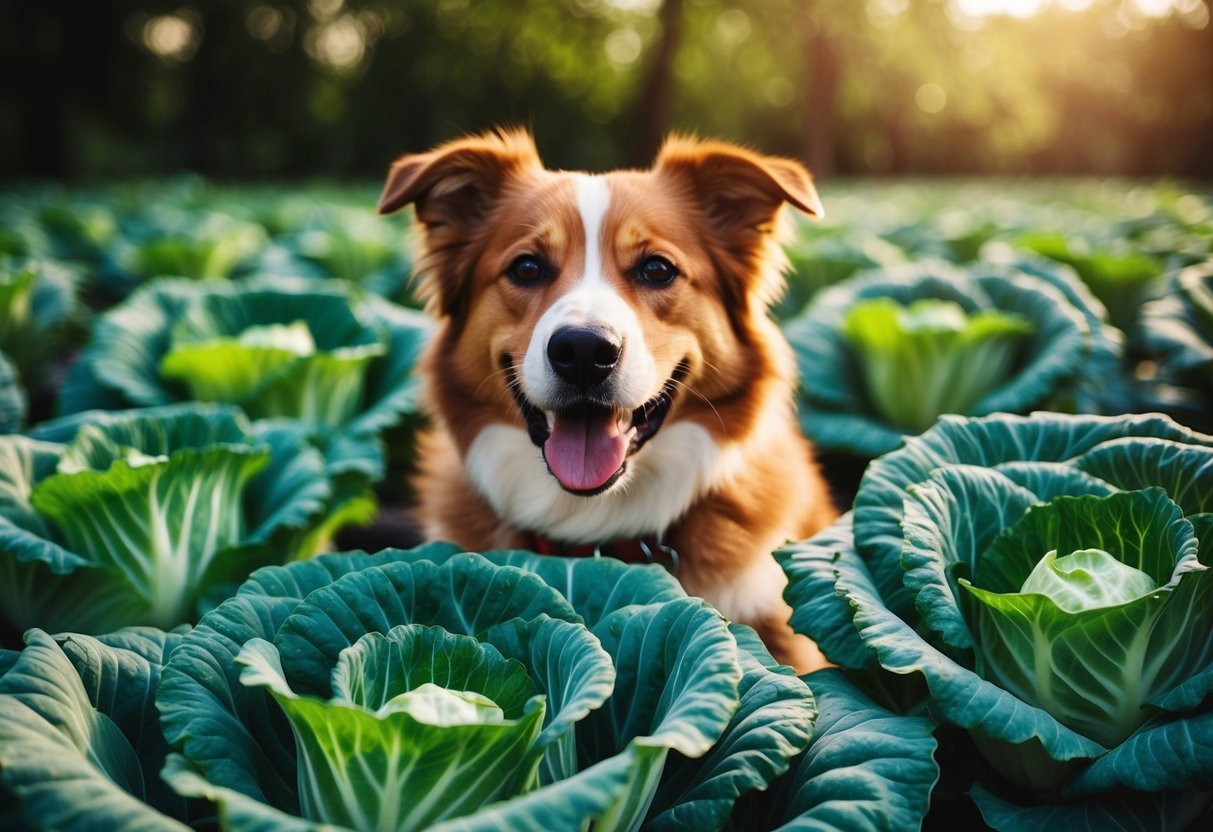
Feeding your dog cabbage can raise some common questions.
Here are specific answers to help guide you on how to safely add this vegetable to your pup’s diet.
What are the health benefits of feeding cabbage to dogs?
Cabbage can improve your dog’s digestion due to its high fiber content.
It’s also rich in vitamins that support a shinier coat and a stronger immune system.
Plus, since it’s low in calories, it makes for a great snack option.
Is it safe for dogs to eat raw cabbage?
Yes, dogs can eat raw cabbage, but moderation is key.
Some dogs might find it hard to digest raw cabbage, which could lead to gas.
Cooking it lightly can make it easier for them to digest.
What’s the best way to prepare cabbage for a doggy diet?
You can steam or lightly cook the cabbage to make it easier for your dog to digest.
Avoid adding any seasoning or oils that could be harmful.
Mixing it into homemade dog food with vet-approved recipes can also be a tasty option.
How often can dogs safely eat cabbage?
You can offer cabbage to your dog a few times a week, as long as it’s in moderation.
Regularly including it in their diet can provide benefits, but balance is important.
Could feeding my dog cabbage cause any digestive issues?
Feeding too much cabbage at once might lead to digestive discomfort, including gas or upset stomach.
Always introduce new foods slowly to see how your dog reacts.
Aside from cabbage, what other veggies are great for dogs?
Carrots, green beans, and peas are also safe and beneficial for dogs.
These veggies can add variety to your dog’s diet and offer different health benefits.

